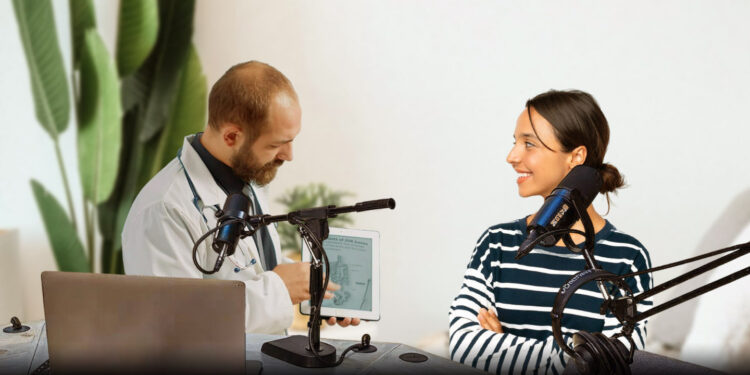Evan Ratliff, a technology journalist, recently released a podcast called “Shell Game” where he talks about an experiment he ran – an experiment that set out to answer a question that we have all asked ourselves at some point. “Can I clone myself to do the things that I currently do not have the time for?”
While Ratliff did not clone his entire self, he did clone his voice using AI-generated tools. He let this AI voice clone take and make phone calls on his behalf. This clone even attended therapy and meetings and spoke to friends and family members for him. And none of them had any idea about his little experiment.
Sounds fascinating to see how far AI has come, right? But it also begs an important question: how, exactly, does AI voice cloning work? Let us find out.
The 411 on AI Voice Cloning: What is It?
AI voice cloning is the process of cloning, i.e. creating a digital copy or replica, of someone’s voice using AI generated and machine learning tools. It essentially creates a copy of your voice that exists separately from you.
It is not just a copy of a voice recording you make, though. AI voice cloning is a separate digital voice that can speak independently on your behalf without you having to feed it the lines. Think of it as another ‘you’ that exists only through audio.
AI voice cloning falls under the umbrella of generative AI since it takes a sample of your voice and creates an artificial version of it that can operate independently.
There are several tools, both free and paid, that can realistically clone your voice using AI. Some examples include ElevenLabs, Speechify, Descript, and HeyGen. All you need to do is give the AI voice cloning tools an audio sample and they will clone your voice within minutes.
This is not to say that AI voice cloning is the only way. Voice cloning is a process that can be carried out manually, too. But that takes up a lot of time and needs a ton of technical know-how. With AI in the mix, though, it can be done by anybody and in a fraction of the time it would take for you to carry out the process manually.
How does AI voice cloning technology work, though?
The Many-Step Process of Creating a Digital Audio Replica with AI
Here is a step-by-step behind-the-scenes of how an AI voice cloning software takes your audio samples and creates a synthetic version of your voice.
Step 1: You feed recorded samples of your voice to the AI voice cloning software. To create a “true” synthetic replica of your voice, you would need to provide at least a few hours’ worth of audios to help the software in learning your inflections, speech patterns, and the differences in how you sound when voicing various emotions.
Step 2: The software will break down your audio samples to analyze your voice. It will extract the data and learn the basic characteristics that make your voice unique, such as tone, pitch, volume, and speed. This step is all about learning the bone structure that makes up your voice
Step 3: Now, the AI voice cloning software will do a deeper dive and learn everything there is to know about your tone, inflections, nuances, speech patterns, accent, intonation, etc. – basically everything that gives your voice its character. This step is about learning how to flesh out your voice.
Step 4: Now that all the data has been extracted from your audio samples, the voice cloning software will use it to train an AI model to speak like you. This step is all about bringing together all the pieces of data the software learned about your voice and putting it together to shape a replica of it.
Step 5: Once a rough voice clone has been created, the software will fine-tune it to make sure all the tiny details match up to your own voice. Once this process is done, your digital voice replica is ready to speak on your behalf.
Your voice clone will virtually be indistinguishable from your real voice, even when it uses new words. Depending on the software you use, you can also clone your voice to speak multiple languages.
Now that we have covered the “what” and the “how,” it is time to talk about the “why.” Why do we need AI voice cloning, anyway? For a variety of reasons, as it turns out.
How Cloning Your Voice with AI Can Be a Game-Changer
None of us can be at multiple places at once no matter how much we will it. The next best thing, though, is sending an AI replica of our voice into the wild to take care of some stuff on our behalf. Here are some use cases of AI voice cloning that can really benefit the cloner.
- Increases accessibility: Have a speech impairment or a condition or accident that left you unable to speak? You can use samples of your audio to create a replica and speak through that. Not only does it help you regain your voice, it also gives you the chance to communicate with clarity, especially in high-stakes situations like meetings.
- Ramps up your content creation: Whether you host a podcast or make short-form videos, an AI voice clone can help you ramp up your production. You will be able to create an entire season of episodes for your podcast within just a day without having to record any of it yourself! Just imagine the amount of time and energy you can save.
- Helps you create content on-the-go: On a vacation and receiving an urgent deadline from work? Or maybe you have to rush to take care of an important family matter on the day you are due to record a podcast episode. By cloning your voice with the help of AI, you will not have to choose between one or the other and panic about your choice. You can simply use your voice replica to create content for you.
- Personalizes customer service: Let us face it. Nobody likes talking to a robot or being greeted with an automated response when they are looking to issue resolved. Enter: voice cloning. Offers all the benefits of a personalized human touch (such as interactive, tailored responses) without actually needing a human being to be there 24×7.
- ‘Brings back’ the voices of historical figures: With AI voice cloning, nobody’s voice is lost forever. It can be preserved long after the person is gone. This could have many benefits. For example, preserving the voice of an iconic singer and creating new songs in their voice, bringing historical figures alive by having their AI voice replicas narrate their own autobiographies to make it more realistic or create interactive and immersive museum experiences, and so on.
- Cuts down time spent on voiceovers: Whether you are lending your voice to a cartoon character or narrating a video game, you will not have to sit glued to your microphone for hours. You can simply let your synthetic voice replica take over for you. The results will be similar, except that you will have saved a ton of your time.
- Broadens horizons: Be it making your content accessible in multiple languages, creating a tailored personal assistant who sounds like you, or narrating the audiobook versions of your stories, AI voice cloning simply broadens the horizons, making itself useful for a variety of tasks. It can also help in creating voice-overs for educational or training materials. The possibilities are simply endless!
A fast-growing entertainment use-case illustrates just how versatile voice cloning has become. Start-ups are now pairing synthetic voices with large-language-model personas to create an ai gf simulator, a conversational companion that speaks in the exact tone and cadence the user requests, complete with real-time emotional inflection. The technical pipeline is identical to the podcast or customer-service examples above. They capture a voice sample to train a TTS model after which they layer it over a dialogue generated by an LLM and stream the audio back with sub-second latency. The result shows that the same tools saving podcasters hours in the studio can also power highly immersive, voice-driven experiences in entertainment and digital wellness.
In short, cloning your voice using AI can improve efficiency and help you automate some repetitive, dull voice-related tasks so that you can focus your energy on more important things.
However, the concept of AI voice cloning begs an important question…
Is AI Voice Cloning Legal?
The question of legality comes into play only when it is about cloning other’s voices. To be clear, you cannot clone other people’s voices without their explicit consent. If you want a voice clone for commercial purposes, it is always best to use your own voice so that you do not get caught in any legal loopholes (which may happen despite obtaining explicit consent from the other parties).
We do not yet know how the laws regarding AI voice cloning might evolve in the future, so better be safe than sorry.
As for the ethicalness of cloning your own voice, that is a completely different matter altogether. So, whether you use your synthetic audio replica to answer phone calls on your behalf, or to host your mental health podcasts, use your cloned voice responsibly and constantly monitor its outputs.













